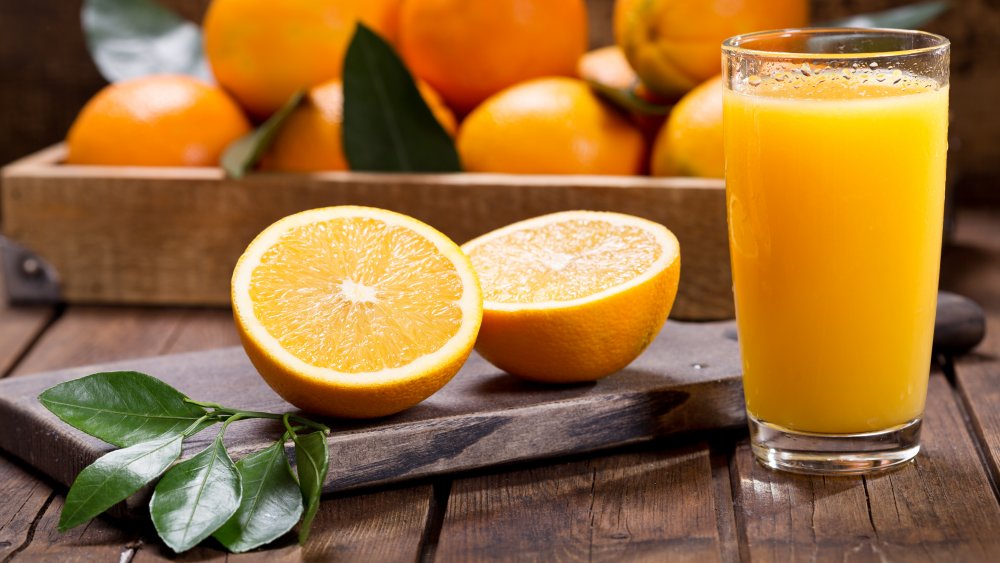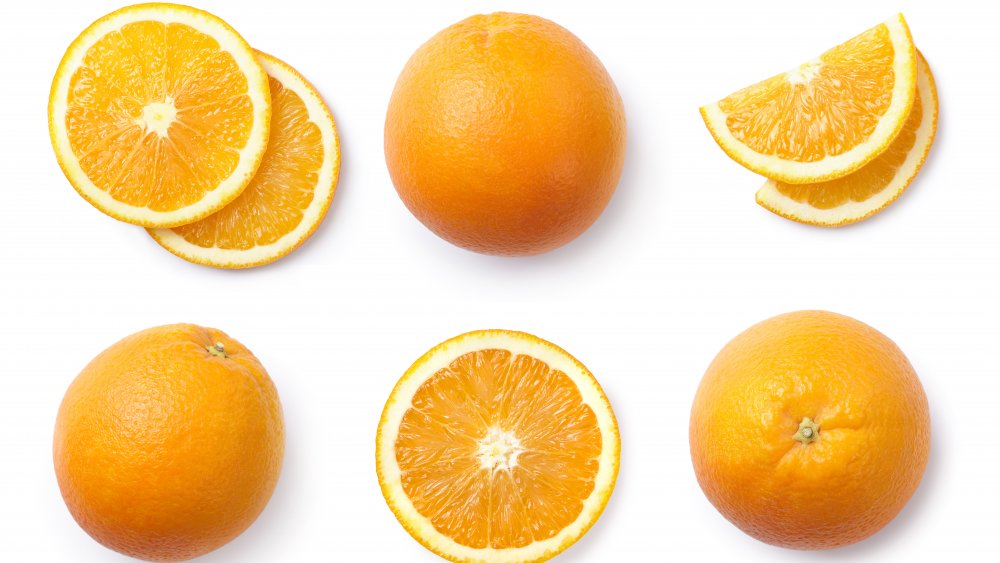The Weird Ingredient That's In Your Orange Juice
Fresh orange juice is just freshly squeezed oranges, right? Wrong. In many cases, bottled orange juice includes artificial flavoring — regardless of what the label says (via Gizmodo). Alissa Hamilton, the author of Squeezed: What You Don't Know About Orange Juice, writes in the book's introduction that orange juice drinkers are "misinformed about what it is they are drinking" (via The New Yorker).
Many Americans who prefer a glass of juice with their breakfast are tempted to spring for bottles of orange juice brandishing a "not from concentrate" label. Coined by Tropicana in the 1980s, this phrase distinguished bottles of pasteurized orange juice from the cheaper reconstituted versions sharing shelf space in the refrigerator. According to Civil Eats, the slogan was meant to send a message of freshness — and it was successful. Despite a higher price point, sales of Tropicana's pasteurized juice soared. Contrary to what consumers may still think, orange juice "not from concentrate" isn't more expensive due to relative freshness. Nope — its higher price tag coincides with storage costs incurred by the companies.
Orange juice contains flavor packs
While some brands do sell naturally fresh orange juice, including Trader Joe's and Whole Foods, many commercial brands use a trick for achieving a fresh from the grove taste (via Toxinless). Known in the industry as flavor packs, the chemical constituents of orange essence and oil could very well be responsible for the bright, sweetly acidic flavor of your favorite orange juice. Enlisting the very same flavor and fragrance manufacturers responsible for fancy perfumes, the orange compounds are broken down and added to juice to conjure up fresh oranges (via The New Yorker).
According to ABC News, flavor packs are made from the volatile compounds released during pasteurization. Kristen Gunter, executive director of the Florida Citrus Processors Association, said, "It's not made in a lab or made in a chemical process, but comes through the physical process of boiling and capturing the [orange essence]." However, orange juice expert Hamilton told The New Yorker that the reassembled chemicals do not resemble anything found in nature.
Why are flavor packs even necessary? Companies keep large quantities of seasonally available orange juice in million-gallon aseptic storage tanks, also known as "tank farms," to ensure a year-round supply. The storage process involves removing the oxygen from the juice, or deaerating it (via The New Yorker). Stripping the oxygen keeps the juice from spoiling while it sits — in some cases up to a year (via Gizmodo).

